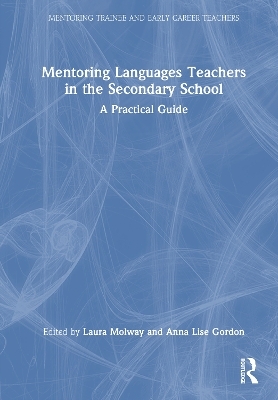
Mentoring Languages Teachers in the Secondary School
Routledge (Verlag)
978-1-032-80106-3 (ISBN)
- Noch nicht erschienen (ca. Mai 2025)
- Versandkostenfrei
- Auch auf Rechnung
- Artikel merken
Research suggests that the role of the mentor is highly influential to the beginning teacher, and this book considers language-specific aspects as well as a focus on the holistic wellbeing of the beginning teacher. Together with analytical tools for self-evaluation, this book is a vital source of support and inspiration for all those involved in developing the next generation of outstanding languages teachers. Key topics explained include:
Roles and responsibilities of mentors
The subject knowledge and understanding required by beginning languages teachers
The lesson planning process
Guidance on teaching core skills of reading, writing, speaking and listening
Development opportunities in each of the languages that they teach
Observations and pre- and post-lesson discussions
Filled with the key tools needed for the mentor’s individual development, this new text offers an accessible guide to mentoring languages teachers with ready-to-use strategies that support, inspire and elevate both mentors and beginning teachers alike.
Laura Molway is a Senior Lecturer at the University of Oxford Department of Education, specialising in second language teacher education. Anna Lise Gordon was a Modern Languages PGCE tutor, before taking on wider leadership and research roles at St Mary’s University, Twickenham.
SECTION 1: INTRODUCTION TO MENTORING
Introduction
Chapter 1. Models of Mentoring
Chapter 2. Understanding yourself and how your experiences influence your approach to mentoring
Chapter 3. What makes a good mentor in modern languages? How to help beginning teachers flourish
SECTION 2: GETTING STARTED AS A MENTOR
Chapter 4. Setting your mentee up for success
Chapter 5. Supporting emerging languages teachers: Key principles to guide the journey
Chapter 6. Supporting the integration of beginning modern languages teachers into the community of practice
SECTION 3: DEVELOPING BEGINNING LANGUAGES TEACHERS’ PEDAGOGICAL KNOWLEDGE, SKILLS, AND UNDERSTANDING
Chapter 7. Supporting beginning languages teachers to analyse teaching that they observe
Chapter 8. Supporting the lesson planning process of beginning languages teacher
Chapter 9. Helping beginning modern language teachers to analyse their own planning and teaching
Chapter 10. Observing your mentee’s teaching and giving written feedback
Chapter 11. Holding pre- and post- lesson discussions with beginning modern languages teachers
Chapter 12. Accelerating Mentorship: Coaching Insights for Empowering Mentor Meetings
SECTION 4: PROVIDING EFFECTIVE SUPPORT FOR BEGINNING LANGUAGES TEACHERS’ WELLBEING
Chapter 13. Managing Wellbeing and Workload with Beginning Languages Teachers
Chapter 14. Supporting a beginning languages teacher who is struggling: a range of scenarios
SECTION 5: SUPPORTING LANGAUGES TEACHERS AS THEY PROGRESS THROUGH LATER STAGES OF THEIR TRAINING AND BEYOND
Chapter 15. Engaging with and in research for classroom practice: Supporting the beginning languages teacher
Chapter 16. Developing the wider professional role of the beginning languages teacher
Chapter 17. Continuing to mentor beginning languages teachers beyond their initial teacher training
Chapter 18. Supporting expert languages teachers: educative mentoring for success
Appendix 1
Appendix 2
Appendix 3
| Erscheint lt. Verlag | 23.5.2025 |
|---|---|
| Reihe/Serie | Mentoring Trainee and Early Career Teachers |
| Zusatzinfo | 21 Tables, black and white; 3 Line drawings, black and white; 9 Halftones, black and white; 12 Illustrations, black and white |
| Verlagsort | London |
| Sprache | englisch |
| Maße | 174 x 246 mm |
| Themenwelt | Sozialwissenschaften ► Pädagogik ► Schulpädagogik / Sekundarstufe I+II |
| ISBN-10 | 1-032-80106-9 / 1032801069 |
| ISBN-13 | 978-1-032-80106-3 / 9781032801063 |
| Zustand | Neuware |
| Informationen gemäß Produktsicherheitsverordnung (GPSR) | |
| Haben Sie eine Frage zum Produkt? |
aus dem Bereich


